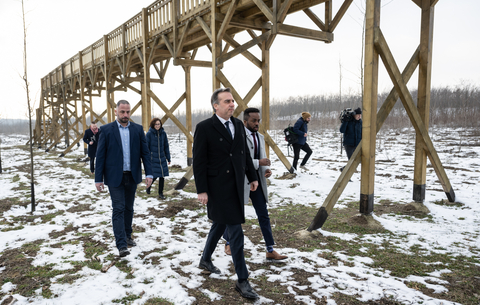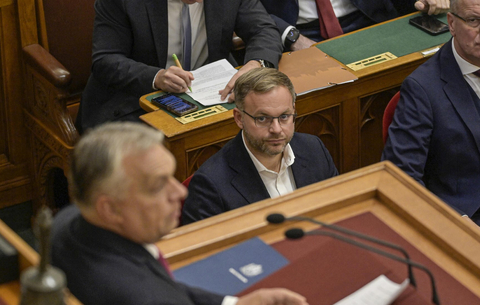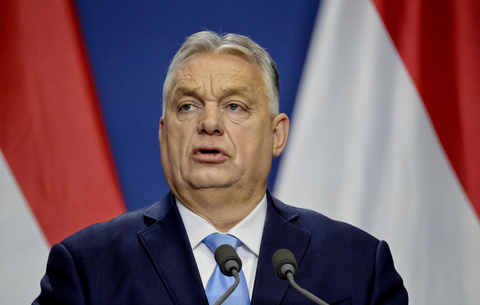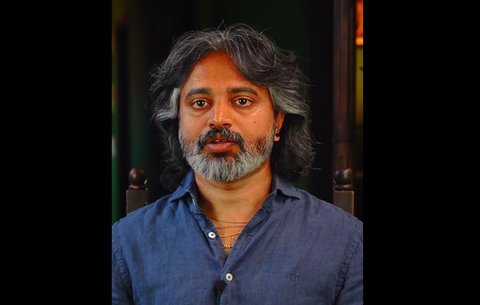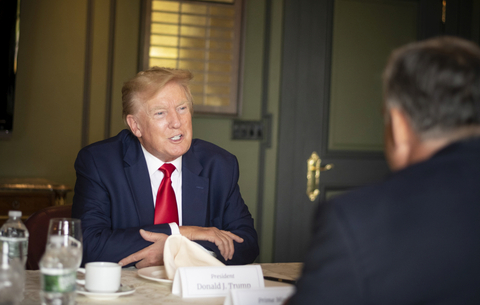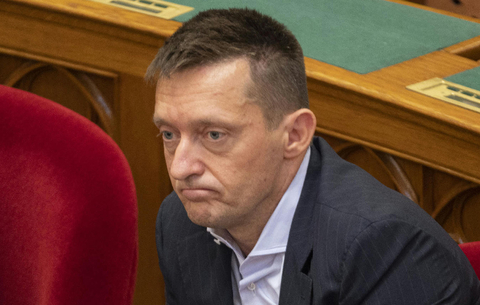Opinion
It was 35 years ago that Willy Brandt, the West German chancellor, visited Warsaw. How many of HVG's younger readers know the original purpose of this visit? And even we old men only remember that Brandt unexpectedly fell to his knees before the Warsaw Ghetto memorial. It wasn't a planned gesture- the chancellor acted spontaneously.
Ferenc Gyurcsány visited the Washington Holocaust Museum last week. And though it was only his first official visit, a number of people can confirm his reaction. He withdrew wordlessly for a few minutes, then, apologising to his small audience, he visibly struggled to say a few words. It wasn't his best speech in Washington, but it was spoken through tears, and I suspect I am not the only one who will remember this speech in particular, weeks, months, years n the future.
I'm no longer familiar enough with the situation back home to say whether these tears would have met the same reaction there. I hope so. But I know that here one doesn't have to be Jewish to understand the significance of such a moment. This was nothing more, and nothing less than an acknowledgment of the fact that Hungary is not just a victim of, but a participant in history. Germans planned the Holocaust, but not all the executors were Germans. Trianon was not only the fault of the great powers. Totalitarian Soviet rule in Hungary was only possible with the co-operation of millions of people. History is not black and white, but grey. Some of the mud attaches to all of us. And Gyurcsány showed that he shared this mature approach, when he acknowledged before an audience of American Hungarians the important role played by István Bethlen in stabilising Hungary after Trianon.
I must confess: at the beginning of his speech, I wasn't really paying attention. But when I heard Bethlen's name, and his plea that the right-wingers in the audience show respect for the left-wingers Anna Kéthly and Oszkár Jászi, I looked up. I had just read György Litván's outstanding study of Jászi. He was a true civic democrat: he understood the importance of private property, but he wrote critically about the failings of Hungarian nationalities policy before World War I. He understood the need for tolerance and patience.
We need that kind of tolerance in today's Hungary as well. I spoke about this with Gyurcsány last week, mentioning the Irish example to him. I won't quote him - it was a private conversation. But what I said was that the next government would have to move beyond the inactivity of the past fifteen years. Real progress was needed for Hungary to assume a leading role in the region and for people to be proud of Hungary once again. Hungary had to follow the Irish example. For years after joining the EU, they made no use of the opportunity. Parties squabbled, they neglected the country. But after a while, the politicians looked at each other, as if to say: "What we're doing is crazy! We have one country, and we have to work together on the important questions."
And now Ireland has a higher per capita GDP than the UK. So there was a German miracle, an Irish miracle. Will there be a Hungarian one? It will happen when the tears of a Hungarian prime minister no longer attract attention.
CHARLES GATI
(The author is Professor of Political Sciences at Johns Hopkins University in Washington, DC)
I'm no longer familiar enough with the situation back home to say whether these tears would have met the same reaction there. I hope so. But I know that here one doesn't have to be Jewish to understand the significance of such a moment. This was nothing more, and nothing less than an acknowledgment of the fact that Hungary is not just a victim of, but a participant in history. Germans planned the Holocaust, but not all the executors were Germans. Trianon was not only the fault of the great powers. Totalitarian Soviet rule in Hungary was only possible with the co-operation of millions of people. History is not black and white, but grey. Some of the mud attaches to all of us. And Gyurcsány showed that he shared this mature approach, when he acknowledged before an audience of American Hungarians the important role played by István Bethlen in stabilising Hungary after Trianon.
I must confess: at the beginning of his speech, I wasn't really paying attention. But when I heard Bethlen's name, and his plea that the right-wingers in the audience show respect for the left-wingers Anna Kéthly and Oszkár Jászi, I looked up. I had just read György Litván's outstanding study of Jászi. He was a true civic democrat: he understood the importance of private property, but he wrote critically about the failings of Hungarian nationalities policy before World War I. He understood the need for tolerance and patience.
We need that kind of tolerance in today's Hungary as well. I spoke about this with Gyurcsány last week, mentioning the Irish example to him. I won't quote him - it was a private conversation. But what I said was that the next government would have to move beyond the inactivity of the past fifteen years. Real progress was needed for Hungary to assume a leading role in the region and for people to be proud of Hungary once again. Hungary had to follow the Irish example. For years after joining the EU, they made no use of the opportunity. Parties squabbled, they neglected the country. But after a while, the politicians looked at each other, as if to say: "What we're doing is crazy! We have one country, and we have to work together on the important questions."
And now Ireland has a higher per capita GDP than the UK. So there was a German miracle, an Irish miracle. Will there be a Hungarian one? It will happen when the tears of a Hungarian prime minister no longer attract attention.
CHARLES GATI
(The author is Professor of Political Sciences at Johns Hopkins University in Washington, DC)
English version
hvg.hu
2005. október. 17. 10:07
"Third way" platform
English version
hvg.hu
2005. október. 17. 10:19
Dreams of the city
English version
hvg.hu
2005. október. 17. 10:22
Magyar Telekom and T-Mobile
English version
hvg.hu
2005. október. 17. 10:11
New beginning
English version
hvg.hu
2005. október. 14. 14:12

